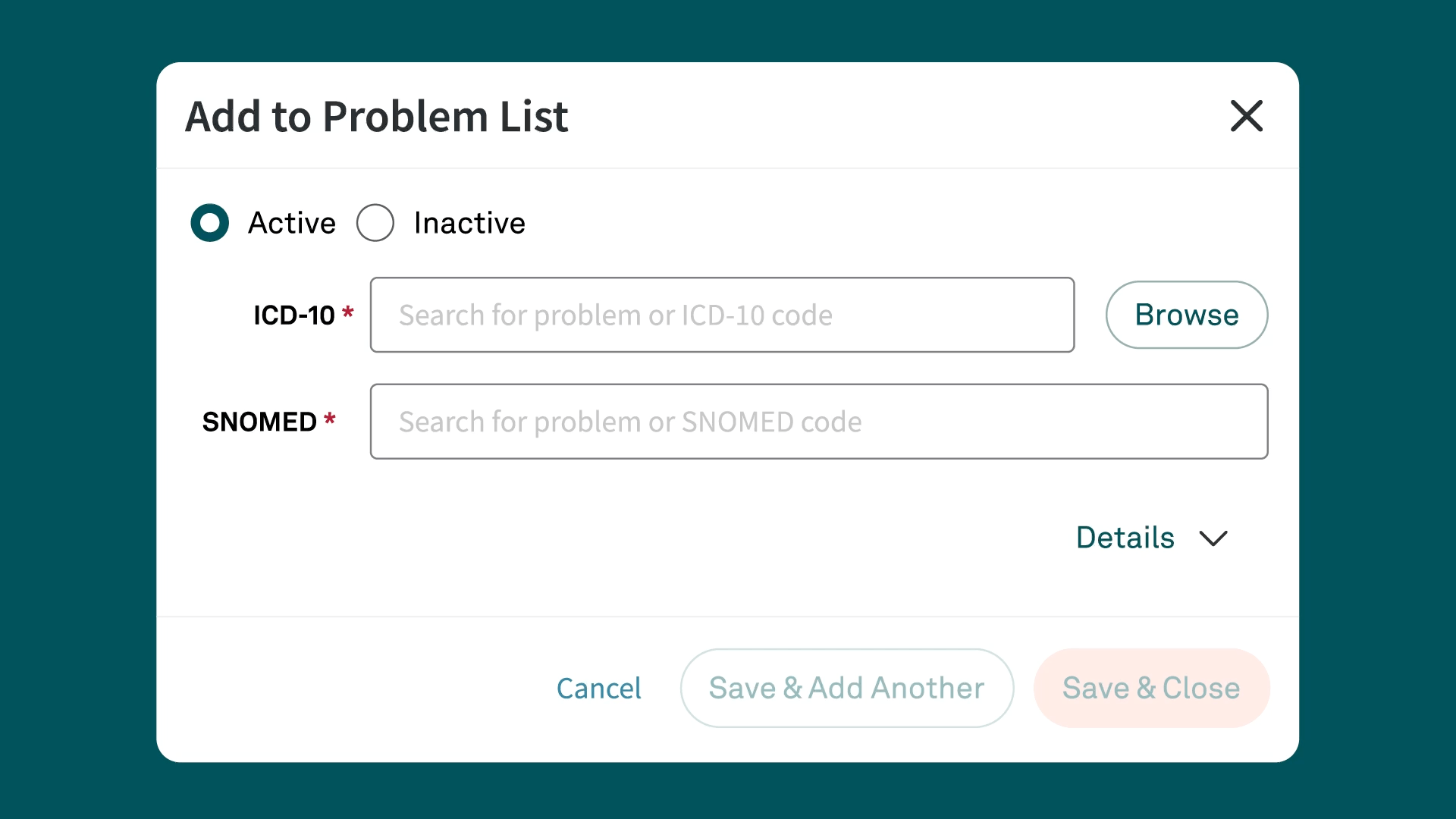ICD-10 Code R09.81
Nasal congestion
What is the code R09.81?
R09.81 is an ICD-10-CM code used to specify a diagnosis of nasal congestion. This code is part of the ICD-10-CM (International Classification of Diseases, Tenth Revision, Clinical Modification), which is used by healthcare providers to classify and code all diagnoses, symptoms, and procedures recorded in conjunction with hospital care in the United States.
Detailed description of R09.81
The ICD-10 code R09.81 describes nasal congestion, a condition characterized by the blockage or obstruction of the nasal passages, usually due to inflammation of the nasal mucosa. R09.81 should be assigned when the underlying cause of the nasal congestion such as infections (e.g., the common cold or sinusitis), allergies, or other irritants has not been determined. Nasal congestion can significantly impact a patient's quality of life, affecting breathing, sleep, and overall comfort.
Symptoms commonly associated with R09.81
- Difficulty breathing through the nose
- Runny nose (rhinorrhea)
- Pressure or fullness in the nasal passages
- Reduced sense of smell
- Postnasal drip
- Sinus pain or headache
- Snoring or noisy breathing during sleep
Related and similar ICD-10 codes
- J00: Acute nasopharyngitis (common cold)
- J01.90: Acute sinusitis, unspecified
- J30.9: Allergic rhinitis, unspecified
- R09.82: Postnasal drip
- J32.9: Chronic sinusitis, unspecified
These codes can be used to specify other conditions that may present with nasal congestion as a symptom.
Appropriate usage of R09.81 for billing
The ICD-10 code R09.81 should be used for billing purposes when nasal congestion is a primary complaint or a significant symptom that warrants clinical evaluation and management. It is important to ensure that the provider documents in their assessment the presence of nasal congestion and that it is significant enough to require medical attention. Avoid using R09.81 if a more specific diagnosis code is available and better describes the patient's condition.This code can be used in various healthcare settings, including outpatient clinics and independent medical practices.
Instructional guidelines for coding R09.81
When using the ICD-10 code R09.81, adhere to the following guidelines:
- According to the ICD-10-CM Guidelines Section IV.D., Diagnostic Coding and Reporting Guidelines for Outpatient Services, codes that describe symptoms and signs, as opposed to diagnoses, are acceptable for reporting purposes when a diagnosis has not been established (confirmed) by the provider. Chapter 18 of ICD-10-CM, "Symptoms, Signs, and Abnormal Clinical and Laboratory Findings Not Elsewhere Classified" (codes R00-R99) contains many, but not all codes for symptoms.
- Refer to the ICD-10-CM guidelines section I.B.4., section I.C.18.a, and section I.C.18.b regarding proper coding of signs and symptoms, use of symptom codes and use of symptom codes with a definitive diagnosis code for general guidance that is applicable to coding R09.81.
- There is an Excludes 1 note found at category R09 "other symptoms and signs involving the circulatory and respiratory system" that is applicable to code R09.81 for the following conditions: acute respiratory distress syndrome (J80), respiratory arrest of newborn (P28.81), respiratory distress syndrome of newborn (P22.0), respiratory failure (J96.-), and respiratory failure of newborn (P28.5). Due to this instructional note, when the patient has been diagnosed with one of the listed conditions, only the condition noted in the Excludes 1 note should be assigned and R09.81 would be omitted.
Common pitfalls in coding with R09.81
- Failing to document sufficient clinical details.
- Using R09.81 when a more specific diagnosis code is available and should be used instead.
- Incorrectly coding R09.81 which is a symptom code, instead of the underlying condition when it is known and documented.
- Not considering payer-specific guidelines and requirements, which may vary and impact reimbursement.
Key resources for R09.81 coding
- ICD-10-CM Official Guidelines for Coding and Reporting
- American Health Information Management Association (AHIMA) resources
- Centers for Medicare & Medicaid Services (CMS) coding guidelines
- Medical coding textbooks and reference guides
- Professional coding organizations and continuing education programs
Conclusion
The ICD-10-CM code R09.81 is used to specify the diagnosis of nasal congestion. Accurate coding and documentation help ensure proper billing and reimbursement. By understanding the detailed description, symptoms, related codes, and proper usage guidelines, healthcare providers can ensure they are coding correctly and efficiently. Using key resources and being aware of common pitfalls can further enhance the accuracy and effectiveness of medical coding practices.
Simplify ICD-10 code documentation with Tebra
Tebra’s EHR+ gives you quick searches and Systematized Nomenclature of Medicine (SNOMED) field names for efficient code documentation. Plus, Tebra automatically saves ICD-10 to SNOMED mapping for future searches, streamlining your workflow.

Discover how Tebra helps providers effortlessly document health-related issues and conditions in this detailed post.
Download your free resource now
Access it instantly — just complete the form

Similar Codes
Stay Ahead with Expert Healthcare & Billing Insights
Get the latest industry updates, financial tips, and expert strategies — delivered straight to your inbox.


